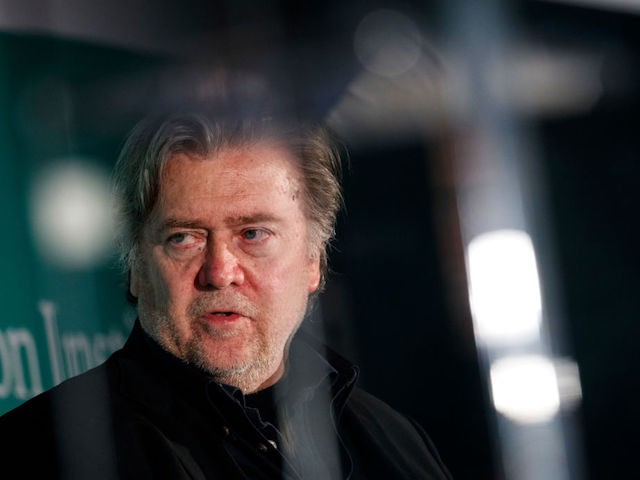Bari Weiss writes in the New York Times about the political conundrum facing right-leaning establishment think tanks in the age of Trump.
These old institutions face the potential loss of influence in maintaining their antipathy to candidate and now-President Trump. And they are also struggling to address the populist economic nationalist movement led by former White House chief strategist Steve Bannon, who recently gave a foreign policy speech at the respected establishment think tank the Hudson Institute.
From Weiss’ op-ed in the New York Times:
Last week the venerable Hudson Institute, a think tank founded in the early 1960s by the nuclear game theorist Herman Kahn, invited three speakers to discuss foreign policy. Leon Panetta and David Petraeus, both former C.I.A. directors, fit comfortably in the establishment mold in which Hudson has long operated.
Not so the third speaker, Stephen K. Bannon. Donald Trump’s former chief strategist has proudly declared “war” on the Republican Party establishment. And yet that very establishment had laid down the welcome mat to this self-described “Leninist.”
The event offers a snapshot of the dilemma facing conservative think tanks in the era of Trump: How much should they engage not just with this administration, but with the increasingly powerful Bannon wing of the Republican Party?
Think tanks are chiefly supposed to provide independent expertise to policymakers. But they also seek to be politically relevant. To be relevant, you need access. And, of course, they also must answer to well-heeled donors, like the Mercer family, whose political loyalties are sometimes vehemently pro-Trump.
This reality leaves these institutions with an uncomfortable choice: fellow-travel with Mr. Trump or let the Trump train pass your station and risk diminishing influence in a Washington where he is boss.
Read the rest here.

COMMENTS
Please let us know if you're having issues with commenting.